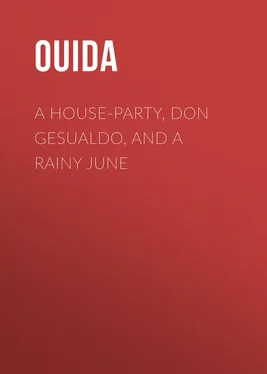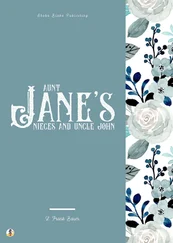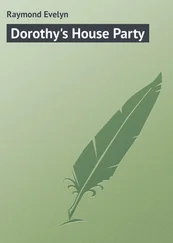Ouida - A House-Party, Don Gesualdo, and A Rainy June
Здесь есть возможность читать онлайн «Ouida - A House-Party, Don Gesualdo, and A Rainy June» — ознакомительный отрывок электронной книги совершенно бесплатно, а после прочтения отрывка купить полную версию. В некоторых случаях можно слушать аудио, скачать через торрент в формате fb2 и присутствует краткое содержание. Жанр: foreign_prose, literature_19, foreign_antique, на английском языке. Описание произведения, (предисловие) а так же отзывы посетителей доступны на портале библиотеки ЛибКат.
- Название:A House-Party, Don Gesualdo, and A Rainy June
- Автор:
- Жанр:
- Год:неизвестен
- ISBN:нет данных
- Рейтинг книги:4 / 5. Голосов: 1
-
Избранное:Добавить в избранное
- Отзывы:
-
Ваша оценка:
- 80
- 1
- 2
- 3
- 4
- 5
A House-Party, Don Gesualdo, and A Rainy June: краткое содержание, описание и аннотация
Предлагаем к чтению аннотацию, описание, краткое содержание или предисловие (зависит от того, что написал сам автор книги «A House-Party, Don Gesualdo, and A Rainy June»). Если вы не нашли необходимую информацию о книге — напишите в комментариях, мы постараемся отыскать её.
A House-Party, Don Gesualdo, and A Rainy June — читать онлайн ознакомительный отрывок
Ниже представлен текст книги, разбитый по страницам. Система сохранения места последней прочитанной страницы, позволяет с удобством читать онлайн бесплатно книгу «A House-Party, Don Gesualdo, and A Rainy June», без необходимости каждый раз заново искать на чём Вы остановились. Поставьте закладку, и сможете в любой момент перейти на страницу, на которой закончили чтение.
Интервал:
Закладка:
"It's one's life does it."
"What life? One has the life one wishes."
"That's the sort of thing a man says who hasn't married."
"My dear George, you cannot pretend your wife would prevent your reading Latin and Greek, or even Sanscrit. I am sure she would much sooner you read them than—well, than do other things you do do."
"I don't say she would prevent me," returns the lord of Surrenden, with some crossness, "but it's the kind of life one gets into that kills all that sort of thing in one. There is no time for it."
"I keep out of the life: why don't you?"
"There's no time for anything," says Usk, gloomily. "There's such heaps of things to see to, and such numbers of places to go to, and then one lives au jour le jour , and one gets into the swim and goes on, and then there's the shooting, and when there isn't the shooting there's the season, and the racing."
"I lead my own life," Brandolin remarks.
"Yes; but you don't mind being called eccentric."
"No; I don't mind it in the least. If they say nothing worse of me I am grateful."
"But you couldn't do it if you had all my places, and all my houses, and all my brothers, and all my family. You're a free agent. I declare that all the time goes away with me in such a crowd of worries that I've hardly a second to smoke a cigarette in, in any peace!"
Brandolin smiles.
A sixth part of most days his host passes leaning back in some easy-chair with a cigar in his mouth, whether his venue be Surrenden, Orme, Denton, the smoking-room of a club, or the house of a friend,—whether London or the country. Usk's own view of himself is of a man entirely devoted to, and sacrificed to, business, politics, the management of his estates, and the million-and-one affairs which perpetually assail him; but this is not the view which his friends take of him.
When ever is the view that our friends take of us our view?
"Once a scholar always a scholar, it seems to me," says Brandolin. "I could as soon live without air as without books." And he quotes Cowley,—
"Books should as business entertain the light."
"You don't continue the quotation," says Usk, with a smile.
" Autres temps autres m[oe]urs ," says Brandolin. He laughs, and gets up: it is four in the afternoon; the delicious green garden is lying bathed in warm amber light; one of the peacocks is turning round slowly with all his train displayed; he seems never to tire of turning round.
"How exactly that bird is like some politicians one could name!" says Brandolin. "Do you know that this charming garden always reminds me of St. Hubert's Lea,—our west garden, I mean? I think the same man must have laid them out. Is it not Bulwer Lytton who says that so long as one has a garden one always has one room which is roofed by heaven?"
"A heaven mitigated by gardeners' wages,—very considerably mitigated," says Usk.
"You are cynical, George, and your mind is running on pounds, shillings, and pence,—an offence against Nature on such a day as this. There is nothing so demoralizing as to think of money."
"To have debts and not to think of 'em is more so; and Boom–"
"Sell something of his that he likes very much, to pay his debts: that's the only way I know of to check a boy at the onset. Your father did it with me the very first time I owed twenty pounds; and he read me a lesson I never forgot. I have been eternally obliged to him ever since."
"What did he sell?"
"My cob,—a cob I adored. I wept like a child, but he didn't see my tears. What I saved up next half to trace out that cob and buy him back at twice his value,—what I denied myself to make up the money,—nobody would believe; and the beast wasn't easy to find: some dealer had taken him over to Ireland."
"That could be done with you," says Usk, gloomily. "It would be no use to do it with Boom: his mother would buy him some other horse the next day. You've no chance to bring up a boy decently if he's got a mother!"
"The reverse is the received opinion of mankind," said Brandolin; "but I believe there's something to be said for your view. No end of women have no idea of bringing up their children, and when they ought to be ordered a flogging they fondle them."
"Dolly does," says her husband. "What's a woman's notion of a horse? That he must have slender legs, a coat like satin, and be fed on apples and sugar: still, they saw his mouth till he half dislocates his neck, and tear his ribs open with their spur. They're just as unreasonable with their children."
"Who is that woman?" says Brandolin, making a step across the window and into the garden. "Now I am perfectly certain that is Madame Sabaroff, without your saying so."
"Then I needn't say so," replies Usk. "I wonder when she came. They didn't expect her till to-morrow."
They both look at a lady in one of the distant alleys walking between the high green walls. She is dressed in some soft cream-colored stuff with quantities of lace. She carries a sunshade of the same hue. She has a tall cane in her other hand. On either side of her are the Ladies Alexandra and Hermione, and before her gambols in his white sailor clothes, with his blue silk stockings and his silver-buckled shoes, the Babe.
"Decidedly the Sabaroff," says Usk. "Won't you come and speak to her?"
"With pleasure," says Brandolin. "Even if the Babe brains me with the cane!"
He looks very well as he walks bareheaded over the grass and along the green alley; he wears a loose brown velvet coat admirably made, and brown breeches and stockings; his legs are as well made as his coat; the sun shines on his curling hair; there is a dégagé , picturesque, debonair, yet distinguished look about him, which pleases the eyes of Xenia Sabaroff, as they watch him draw near.
"Who is that person with your father?" she asks. The children tell her, all speaking at once.
She recognizes the name; she has heard of him often in the world, and has read those books which praise solitude and a dinner of herbs. "I doubt his having been alone very long, however," she reflects, as she looks at him. A certain unlikeness in him to Englishmen in general, some women who are fond of him fancifully trace to the fact that the first Brandolin was a Venetian, who fled for his life from the Republic, and made himself conspicuous and acceptable for his talents alike as a lutist and a swordsman at the court of Henry the Second. "It can't count, it's so very far away," he himself objects; but perhaps it does count. Of all things ineffaceable, the marks of race are the most indelible.
The Venetian Brandolin married the daughter of a Norman knight, and his descendants became affectionate sons of England, and held their lands of St. Hubert's Lea safely under the wars of the Roses, of the Commonwealth, and of the Jacobites. They were always noticeable for scholarly habits and artistic tastes, and in the time of George the Second the Lord Brandolin of the period did much to enrich his family mansion and diminish the family fortunes by his importations of Italian sculptures and pictures and his patronage of Italian musicians. The house at St. Hubert's Lea is very beautiful, but it requires much more to keep it up than the present owner possesses. He is often urged to let it, but he scouts the idea. "You might as well ask me to sell the Brandolin portraits, like Charles Surface," he says, angrily, whenever his more intimate friends venture on the suggestion. So the old house stands in its warm-hued and casket-like loveliness, empty, save for his occasional visits and the presence of many old and devoted servants.
"An interesting woman," he thinks now, as he exchanges with the Princess Sabaroff the usual compliments and commonplaces of a presentation. "Russians are always interesting: they are the only women about whom you feel that you know very little; they are the only women who, in this chatterbox of a generation tout en dehors as it is, preserve some of the vague charm of mystery; and what a charm that is!"
Читать дальшеИнтервал:
Закладка:
Похожие книги на «A House-Party, Don Gesualdo, and A Rainy June»
Представляем Вашему вниманию похожие книги на «A House-Party, Don Gesualdo, and A Rainy June» списком для выбора. Мы отобрали схожую по названию и смыслу литературу в надежде предоставить читателям больше вариантов отыскать новые, интересные, ещё непрочитанные произведения.
Обсуждение, отзывы о книге «A House-Party, Don Gesualdo, and A Rainy June» и просто собственные мнения читателей. Оставьте ваши комментарии, напишите, что Вы думаете о произведении, его смысле или главных героях. Укажите что конкретно понравилось, а что нет, и почему Вы так считаете.












